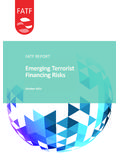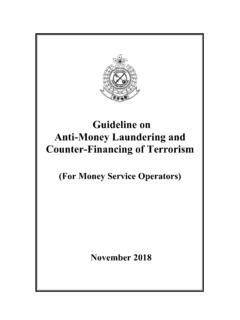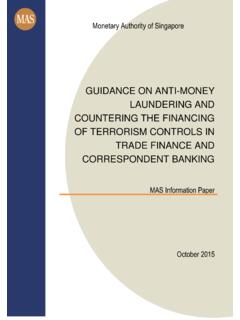Transcription of GUIDELINE ON ANTI-MONEY LAUNDERING AND …
1 BANK OF MAURITIUS GUIDELINE ON ANTI-MONEY LAUNDERING AND combating THE financing OF terrorism AND PROLIFERATION January 2020 I Table of Content Chapter 1 Introduction Chapter 2 Authority, purpose, scope of application and status of the GUIDELINE Chapter 3 Overview of the legislative framework Chapter 4 Risk-based approach Chapter 5 Internal Controls, policies and procedures Chapter 6 Customer due diligence / Identification Procedures Chapter 7 Ongoing monitoring Chapter 8 Terrorist financing , financial sanctions and proliferation financing Chapter 9 Reporting of Suspicious transactions Chapter 10 Record-keeping Chapter 11 Staff training 2 1.
2 INTRODUCTION The ability to launder the proceeds of criminal activity through the financial system is a key element to the success of criminal operations. The unchecked use of the financial systems for this purpose has the potential to undermine individual financial institutions and, ultimately, the entire financial sector. The increased integration of the world's financial systems, the removal of barriers to the free movement of capital and the expansion of electronic banking have enhanced the ease with which criminal money can be laundered and simultaneously complicate the tracing process. Terrorists acts perpetrated by terrorists and terrorist organizations also necessitate money, which may be derived from diverse sources and layered through the global financial system to conceal the destination and the purpose for which the money has been collected.
3 Terrorists and terrorist organizations therefore employ techniques similar to those used by money launderers to hide the sources and uses of their money. Similarly, money is required for the proliferation of weapons of mass destruction (WMD)1. In view of the interconnectedness between proliferation financing2 and terrorism and terrorism financing , it is essential to counter these financing activities in order to prevent the commission of terrorist acts. In fact, a number of international conventions provide for measures to detect and prohibit proliferation, especially with regard to nuclear materials. The Financial Action Task Force (FATF)3 has developed a series of Recommendations4 that are recognised as the international standard for combating of money LAUNDERING and the financing of terrorism and proliferation of weapons of mass destruction.
4 A key element of the FATF s revised 2012 Recommendations is the application of a risk based approach. Under the risk-based approach, countries and financial institutions are expected to understand, identify and assess their ML/TF risks, take appropriate actions to mitigate those risks and allocate their resources efficiently by focusing on higher risk areas. These Recommendations form the basis for a co-ordinated response to these threats to the integrity of the financial system and help ensure a level playing field. They are intended to be of universal application. In recognition of the nefarious consequences of money LAUNDERING and the financing of terrorism and proliferation, the State of the Republic of Mauritius has through numerous initiatives demonstrated its firm willingness to combat money LAUNDERING and terrorist and proliferation financing .
5 1 The FATF defines proliferation of weapons of mass destruction (WMD) as the transfer and export of nuclear, chemical or biological weapons, their means of delivery and related materials. 2 Proliferation financing is the act of providing funds or financial services which are used, in whole or in part, for the manufacture, acquisition, possession, development, export, transhipment, brokering, transport, transfer, stockpiling or use of nuclear, chemical or biological weapons and their means of delivery and related materials (including both technologies and dual-use goods used for non-legitimate purposes), in contravention of national laws or, where applicable, international obligations.
6 3 The Financial Action Task Force (FATF) is an inter-governmental body established in 1989 by the Ministers of its Member jurisdictions. The objectives of the FATF are to set standards and promote effective implementation of legal, regulatory and operational measures for combating money LAUNDERING , terrorist financing and other related threats to the integrity of the international financial system. 4 The International Standards on combating Money LAUNDERING and the financing of terrorism & Proliferation issued, in February 2012, by the FATF are available on the website of the FATF at 3 Mauritius has, further, committed itself to the FATF Forty Recommendations and to its Mutual Evaluation procedure.
7 Mauritius being a founder member of the Eastern and Southern Africa ANTI-MONEY LAUNDERING Group (ESAAMLG)5, which is an associate member of the FATF, participates in a self-assessment process to assess its progress in implementing the FATF Recommendations. Mauritius has also ratified and acceded to numerous international conventions, protocols and treaties to express its commitment towards the international community to combat this scourge. Several pieces of legislations have been enacted since the year 2000 to combat money LAUNDERING and terrorism financing . The legal framework was further enhanced in 2018 with a view to aligning it with the 2012 FATF Standards, amongst others.
8 The relevant legislative enhancements aimed at strengthening the AML/CFT framework by, inter alia,: (a) enabling Mauritius to adhere to FATF Recommendations 6 and 7 and to implement the restrictive measures under all the United Nations Security Council Resolutions and deal with other matters of international concern, and to give effect to Article 41 of the Charter of the United Nations, through the enactment of the United Nations (Financial Prohibitions, Arms Embargo and Travel Ban) Sanctions Act 2019 (UN Sanctions Act). (b) enhancing the existing legal framework for preventive measures that apply to financial institutions and Designated Non-Financial Businesses and Professions, which are now collectively referred to as reporting persons in the Financial Intelligence and ANTI-MONEY LAUNDERING Act (FIAMLA) and the Financial Intelligence and ANTI-MONEY LAUNDERING Regulations 2018 (FIAML Regulations) which address the following FATF requirements, inter alia: (i) Customer Due Diligence; (ii) Politically exposed persons; (iii) Correspondent banking; (iv) Money or value transfer services; (v) New technologies; (vi) Wire transfers.
9 (vii) Reliance on third parties; and (viii) Internal control and foreign branches and subsidiaries. (c) extending the scope of the FIAMLA to include the financing of proliferation; (d) establishing a legal framework to support the National Risk Assessment exercise; 5 The Eastern and Southern Africa ANTI-MONEY LAUNDERING Group (ESAAMLG), which comprises 18 countries in the eastern and southern African region, is a Regional Body subscribing to global standards to combat money LAUNDERING and financing of terrorism and proliferation. Its main objectives are to - (a) adopt and implement the 40 Recommendations of the FATF; (b) apply ANTI-MONEY LAUNDERING measures to all serious crime; (c) implement measures to combat the financing of terrorism , and (d) implement any other measures contained in the multilateral agreements and initiatives relevant to prevention and control of LAUNDERING of proceeds of all serious crimes and the financing of terrorism and proliferation of weapons of mass destruction.
10 4 (e) vesting Regulatory Bodies, specified in Part I of the First Schedule of FIAMLA, with the powers to supervise and enforce compliance by members of relevant professions or occupations falling under their purview with the AML/CFT requirements imposed under the FIAMLA and the UN Sanctions Act and any regulations or guidelines made thereunder. Mauritius has also adopted a National Strategy for combating Money LAUNDERING and the financing of terrorism and Proliferation 2019-2022 which sets out the approach which Mauritius will adopt to tackle money LAUNDERING (ML), terrorist financing (TF) and proliferation financing (PF) threats over the next three years.
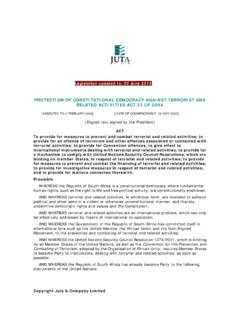
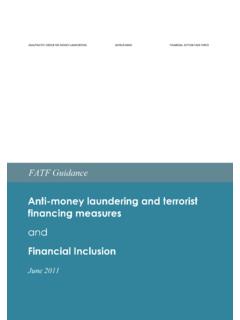
![[Provisional Translation]](/cache/preview/a/6/7/b/7/e/9/c/thumb-a67b7e9c725da77b4e87c3e548fe7983.jpg)
